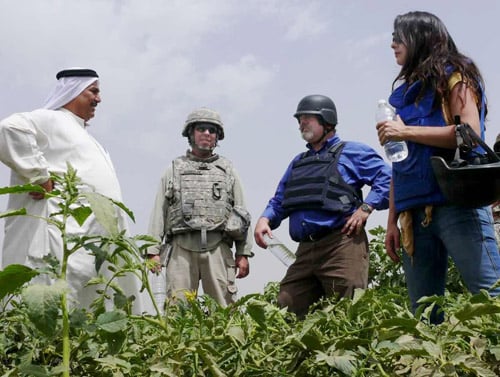
Development Meeting in Iraq – Image Credit: US Embassy/Baghdad
I have written before about the negative effects on the US Government because of an over-reliance on contractors, especially by USAID. But the distortion runs both ways – the organizations scrambling for and implementing those contracts are also affected. In an article this month in The New Republic, “How NGOs Became Pawns in the War on Terrorism,” David Rieff describes how a wide range of NGOs (and I would add some for-profit firms) were changed by their desire (perhaps need) to follow the enormous sums of money available to work in Iraq and Afghanistan.
He notes that the conflict zones are rapidly expanding beyond Afghanistan and Iraq, as is the development funding contracted out as part of that overall effort:
Many times in my work on development projects I have encountered local groups known as GONGOs (government-organized non-governmental organizations). These are organizations that are set up to appear to be separate from the government so that they can qualify for international donor money and also make the domestic political system appear to be more open than it really is. But the notion that they are true NGOs is misplaced as they are beholden to government for legal authority to operate and for funding. Egypt, Kenya, Morocco and Zimbabwe have been brilliant at GONGO-creation. Do we now see a collection of NGOs in the US that are, in reality, GONGOs? If the vast majority of one’s budget come from the government and your organization is working in support of counter-insurgency operations in combat zones, just how non-governmental can you claim to be?
I highly recommend reading Rieff’s entire article, as well as his more recent piece on a similar topic, “Losing Hearts and Minds: Development and its Discontents.”
In addition, anyone interested in the role of contractors in conflict zones should read the congressional testimony of Richard Fontaine from the Center for a New American Security. It can be found here.